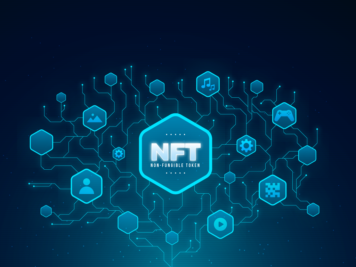In the evolving landscape of blockchain technology, Zero-Knowledge Proofs (ZKP) stand out as a revolutionary cryptographic paradigm that addresses critical privacy and security concerns. This is one of the main reasons why agencies like the United Nations High Commissioner for Refugees (UNHCR) are now considering ways to use zero-knowledge proofs (ZKPs) to protect the sensitive data of refugees. In fact, market analysts have predicted that the market for ZKP is all set to exceed $10 billion by 2030.
Researchers are particularly interested in combining ZKP with artificial intelligence and machine learning models. This is because the technology can enable training and utilization without exposing underlying data.
This article delves into the nuances of ZKP, highlighting its importance, challenges, and future trajectory in the context of decentralized blockchain systems.
Understanding Zero-Knowledge Proof (ZKP)
ZKP is a cryptographic method that enables one party (the prover) to prove to another (the verifier) that a statement is true without revealing any information beyond the fact of the statement’s truth. This concept, introduced in the 1980s, has gained prominence for its ability to enhance privacy and security in digital interactions.
How ZKP Works: ZKP operates through a series of interactions where the prover convinces the verifier of the truth of a statement without revealing the actual data or how they know it. The process involves complex algorithms that facilitate this proof without sharing the underlying information, thus maintaining privacy and data integrity.
The Rising Attention Towards ZKP
ZKP has garnered attention in the blockchain community due to its potential to resolve inherent privacy issues within transparent and immutable ledger systems. With blockchain technology infiltrating sectors, the demand for privacy-enhancing solutions like ZKP escalates as it can effectively address some of the pain points associated with privacy, security, and trust in digital transactions and interactions.
1.Enhanced Privacy: Protecting Sensitive Data
Products like social media platforms, online marketplaces, and health apps often require users to share personal data, from location to financial details and health records. For instance, a health app may need access to a user’s medical history to provide personalized advice. However, excessive data sharing can lead to privacy concerns, as it might result in unauthorized access or misuse of sensitive information.
ZKP can revolutionize privacy in such products by enabling the verification of necessary conditions (like age or health condition) without revealing the actual data. For example, in the health app scenario, ZKP would allow the app to verify that a user has a specific medical condition or prescription eligibility without accessing the user’s detailed medical history. This ensures that the user’s sensitive health data remains private and is not exposed or stored unnecessarily on the app’s servers.
2. Security Reinforcement: Minimizing Data Breach Risks
Companies face significant challenges in protecting customer data against breaches and cyber-attacks. It is a great concern for financial service providers, like banks and investment platforms as they frequently become targets of cybercriminals due to the sensitive nature of financial information they handle. A breach can lead to significant financial loss and damage to reputation.
ZKP enhances security by enabling proof of a transaction’s validity without revealing the actual transaction details. In a financial services context, ZKP can confirm that a customer has sufficient funds for a transaction without the need to access or reveal the customer’s actual account balance. This reduces the risk of data breaches because even if a system is compromised, the attacker cannot gain access to the customer’s financial details.
3. Trust Facilitation: Enhancing Confidence in Digital Interactions
In digital marketplaces and platforms where buyers and sellers transact, establishing trust without revealing sensitive information is crucial. A B2B marketplace platform is a great example to understand this problem. Such platforms are required to ensure that businesses are legitimate and capable of fulfilling contracts without exposing proprietary or financial details of the businesses involved.
With ZKP, these platforms can ensure their partners trust them by allowing companies to prove their reliability or financial health to potential partners without disclosing the exact details of their business operations or finances. Companies can prove it has met certain financial thresholds or compliance standards required for a transaction or partnership, without sharing its detailed financial records or compliance audit reports.
Zero-knowledge Proofs and Blockchain: A good match
Zero-Knowledge Proofs (ZKP) are crucial in the blockchain ecosystem to strike a balance between transparency and privacy. By allowing entities to prove the validity of transactions or claims without revealing underlying data, ZKP addresses privacy concerns inherent in blockchain’s transparent nature.
Here’s how ZKP integrates with blockchain technology across diverse industry tech products:
- Financial Services: Enhancing Transaction Privacy
In the financial sector, blockchain technology is utilized for its immutability and transparency, providing a secure and transparent ledger for transactions. However, the need for privacy in financial dealings is paramount.
In cryptocurrency, ZKP maintains privacy by protecting the transactions. Monero and Zcash could be great examples as they use ZKP to facilitate private transactions, allowing users to transact without disclosing the amount or the parties involved. Zcash, specifically, employs zk-SNARKs, a form of ZKP, to enable shielded transactions where the transaction details are encrypted, yet still verifiable on the blockchain. This ensures the integrity of financial transactions while maintaining user privacy. - Healthcare: Secure Medical Data Sharing
Patient data privacy remains a critical concern in the healthcare industry. Recent integrations of blockchain in the industry for secure and immutable record-keeping is a step towards mitigating those concerns. Some of the companies have already started experimenting with ZKP to ensure they stay a step ahead. Medicalchain is one of them.
Medicalchain uses blockchain to create a decentralized platform for secure storage and exchange of medical records. By integrating ZKP, it allows healthcare providers to access verifiable medical data without exposing the patient’s entire medical history, ensuring confidentiality and compliance with regulations like HIPAA. - Supply Chain Management: Verifiable Provenance without Privacy Compromise
The supply chain management industry is leveraging blockchain to improve traceability and transparency as it can help in verifying the authenticity and journey of products.
ZKP can be integrated in the supply chain management systems to allow companies to prove the origin and handling of products without revealing sensitive business information or proprietary data, thus maintaining competitive advantage while ensuring product integrity. It has a lot of potential in the FMCG sector where the origin of food matters to a great extent. - Governance: Transparent Voting with Anonymity
The voting system often plays an axial role in a democracy. However, the system often draws flak from the critics for erroneous processes and results. Blockchain’s application in governance, particularly in voting systems, could reduce fraud and increase transparency.
Voatz is a perfect example to explain how ZKP and blockchain can turn things for the voting system. Voatz is a mobile voting platform that uses blockchain to secure the voting process. Incorporating ZKP can ensure that votes are cast and recorded without linking the vote to the voter’s identity, thus preserving the anonymity and integrity of the electoral process. - Legal Sector: Confidential and Verifiable Contract Execution
In the legal sector, blockchain can streamline contract execution and dispute resolution through smart contracts.
Several firms have already started using blockchain to create and execute legal agreements. By using ZKP, these companies can prove that contract terms have been met or that obligations are fulfilled without disclosing the specific details of the contract to unauthorized parties, thereby upholding the principle of confidentiality in legal proceedings.
ZKP in Blockchain: Identifying the Hurdles and Challenges Ahead
ZKP, while powerful, navigates through a complex web of technical, operational, and regulatory challenges that shape its integration and effectiveness in Blockchain ecosystems. Let’s go through the challenges and limitations one by one.
- Scalability Challenges:
As Blockchain networks expand, ensuring that ZKP systems can scale effectively is a major concern. These systems must handle growing volumes of transactions and users while maintaining speed and efficiency; otherwise, they can become a bottleneck in Blockchain’s performance. - It’s complex:
The complexity and resource intensity of implementing ZKP can be prohibitive. Developers and users must understand the intricacies of these cryptographic methods to ensure their secure and correct application, which demands significant expertise and resources. Implementing ZKP requires expertise across several domains:
- Cryptographers: They delve into the intricate mathematics behind ZKP and craft the algorithms that make it possible.
- Blockchain Specialists: They know how to integrate ZKP with existing Blockchain frameworks, ensuring that the privacy features are correctly implemented and utilized.
- Security Experts: They navigate the potential vulnerabilities introduced by ZKP and ensure that the Blockchain system remains secure against evolving digital threats.
- Privacy vs. Regulation:
Balancing privacy enhancement with regulatory compliance is a complex challenge. ZKP can significantly improve privacy but must also accommodate lawful access and audit requirements, necessitating a careful design to meet both privacy and regulatory demands.
Wrapping up:
In summary, Zero-Knowledge Proofs (ZKP) significantly enhance blockchain technology’s privacy and security. By allowing the verification of information without exposing sensitive data, ZKP solves critical challenges within the blockchain’s transparent nature.
In industries like finance, healthcare, and supply chain, ZKP enables secure and private transactions, identity verification, and data sharing. However, integrating ZKP in blockchain faces scalability, complexity, and regulatory challenges. Despite these hurdles, the potential of ZKP in blockchain is vast, promising a future where digital transactions are both transparent and private.
As ZKP evolves, it’s poised to further secure and privatize blockchain transactions, making it an indispensable tool in the blockchain ecosystem. The journey towards integrating ZKP and blockchain continues to be driven by the quest for a balanced approach to transparency and privacy in the digital realm.








